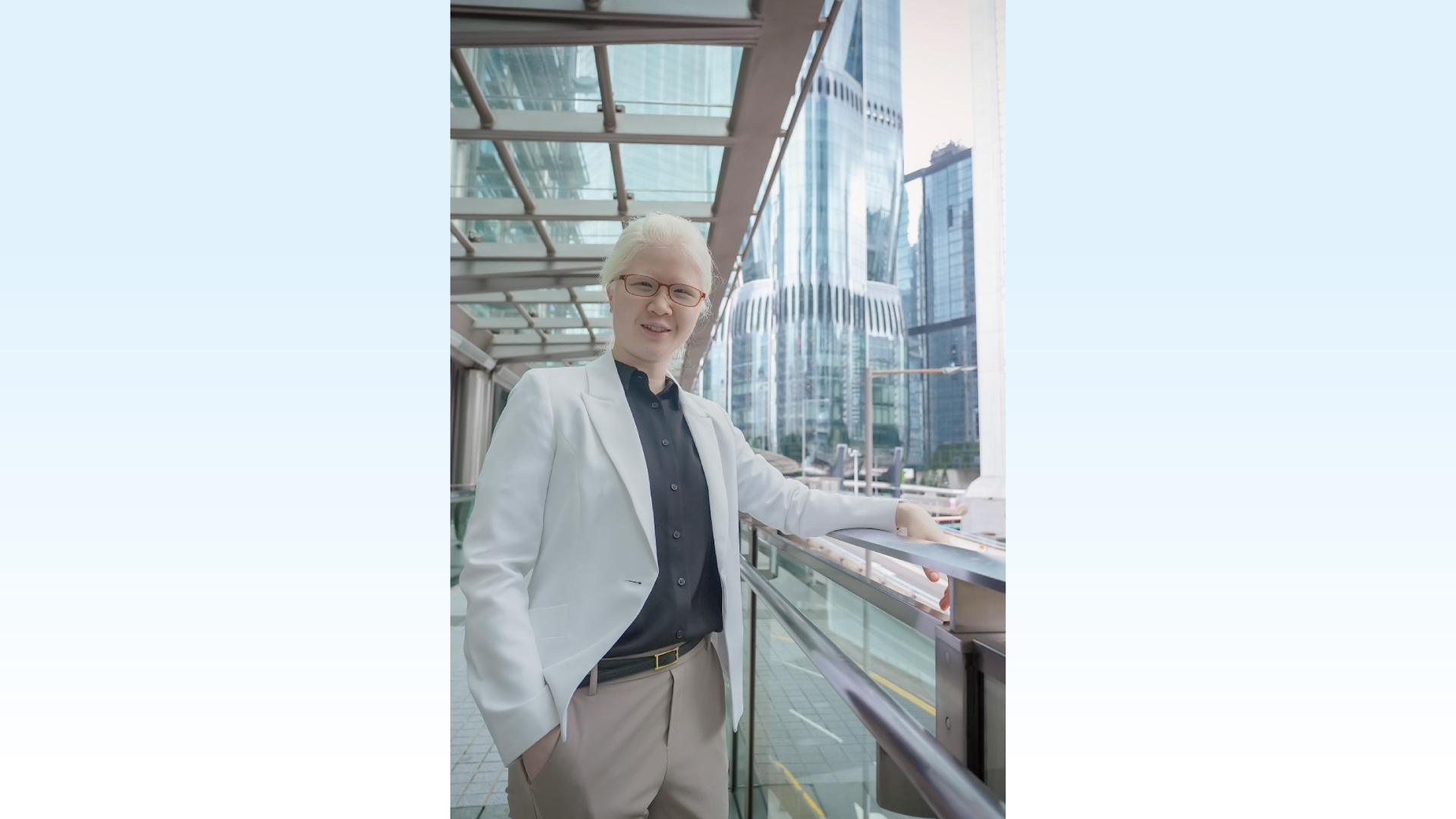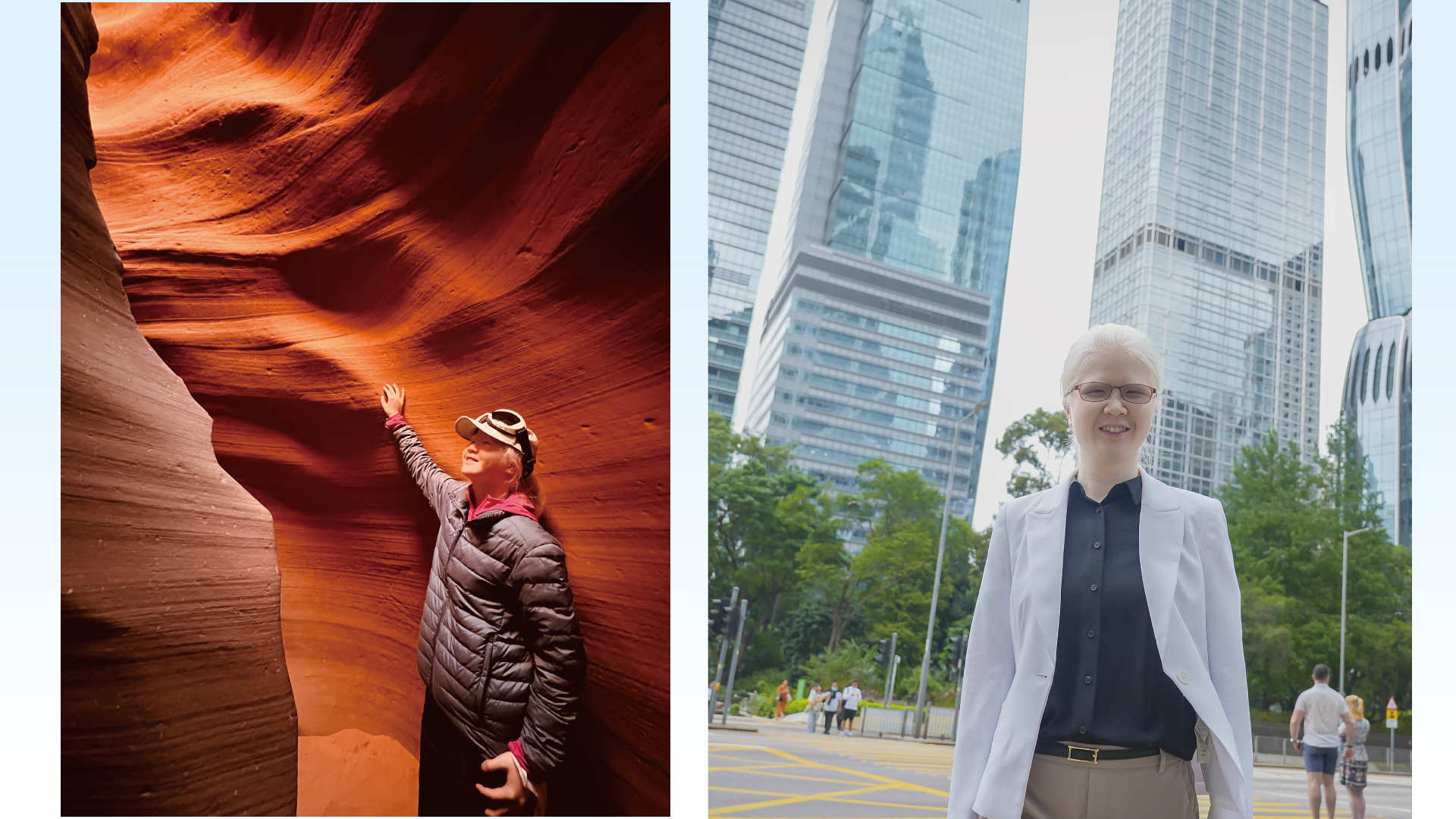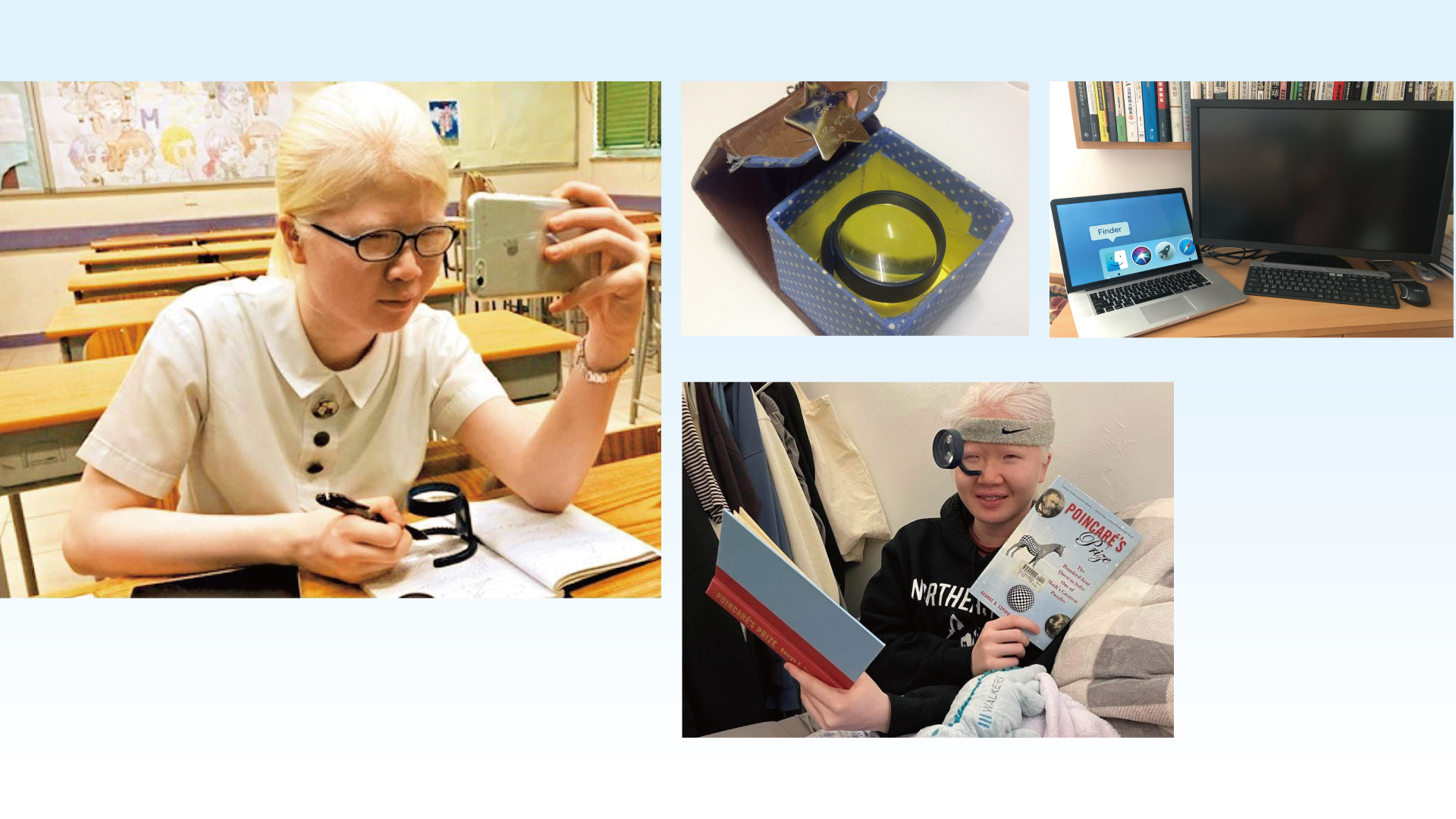
School alumna Eli TANG (BSc (Quantitative Finance)) was born with albinism, but that never stopped her from pursuing her dreams and a career as a trader, and she thanks HKUST for that.
Eli Tang’s life story is a great example of resilience and the power of support received at the right time. A proud alumna of the HKUST Business School, she opted to study quantitative finance, but faced unique challenges throughout her academic career. However, thanks to her own determination and the unwavering assistance of fellow students, professors and other university staff, she has emerged a confident and accomplished young professional who now works as a trader in the fast-moving world of finance.
Born with albinism, Eli has fair skin and white hair that make her prone to sunburn and only 10 per- cent of her eyesight remaining. Yet her infectious smile and playful spirit reflect her resolve not to let life’s challenges define her. She does recall, though, that one of the biggest hurdles during her studies was meeting new people and then recognizing them again.
“Unlike in secondary school, where you can remember people’s names simply by where they sit, at university, with no assigned seating, this became a real challenge for me,” Eli said. Although she had a close- knit group of friends taking the same major, identifying recent acquaintances especially in larger settings proved difficult. It took real determination to overcome this social obstacle.
“Initially, I was very shy, but then I started to open up because I wanted to meet more new people,” she said. “I would explain to them that if you see me in the canteen, you should grab me. Otherwise, I have no way of finding you.”
This willingness to be vulnerable and communicate her needs paid off. And Eli soon discovered that when you are open in that way, people are actually really nice.
 (Left) Visiting the Grand Canyon during her exchange year in Boston, USA; (Right) Embarking on a career in the financial services sector after graduating from HKUST
(Left) Visiting the Grand Canyon during her exchange year in Boston, USA; (Right) Embarking on a career in the financial services sector after graduating from HKUST
As she progressed through university, Eli found that the support offered by faculty and her peers was invaluable. Classmates were always welcoming in inviting her to join in group activities, while teachers were thoughtful in making adjustments to accommodate her needs. For instance, the professors changed the color of their laser pointers from red to a brighter green to make it easier to follow lectures.
“I feel very lucky. I’ve never faced severe discrimination or bullying,” she said, noting that society in general now has a better understanding of students with special educational needs.
As a result, Eli enjoyed her courses and took a full part in university life, which included doing internships, living in a student dorm, and pursuing her passion for music by learning guitar.
“Even though it was tough, I loved the challenge, and I definitely practiced hard,” she said.
Along the way, the HKUST Counseling and Wellness Center was on hand when necessary to offer advice and suggestions. The center also organizes activities that foster community spirit among students with unique needs and create a sense of mutual support. In Eli’s case, this helped her develop a proactive approach to her studies and deciding on a preferred career path.
Indeed, she still clearly recalls taking part in business competition during her first year. Although she didn’t win, she took the initiative by writing a thank- you letter to the judges, which led to an interview for her first internship in finance.
“I wanted to understand why I lost, so I wrote to them,” she said. “It showed them my interest and character and opened doors for me.”
That approach helped in overcoming personal challenges and has also turned out to be an advantage in her current role.
“To be a good trader, you have to be very persevering,” she said. “You never know what is going to happen tomorrow. You have to be unafraid of challenges.”
That plus a dedication to continuous improvement have been key drivers in Eli’s success to date. Looking ahead, she now hopes to use her financial expertise to support social enterprises, teaching them about financial management and funding. She also wants to share her story with other students to inspire them to believe in themselves and overcome their own obstacles.
“Always be true to yourself,” she said. “Don’t hide your limitations or disability. Manage others’ expectations, but also show them what you can contribute. Believe in yourself and the support will come.”




